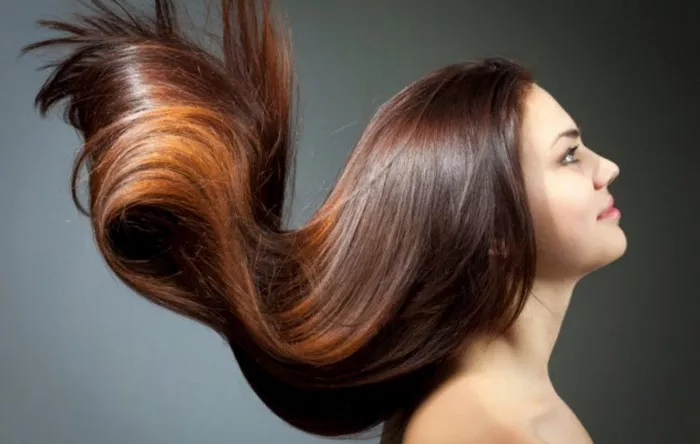Healthy, thick hair is a sign of vitality and beauty. While genetics and hair care routines play a role, your diet is a powerful tool for improving hair strength and growth. Hair is primarily made of keratin, a protein, which means the nutrients you consume directly impact hair health. This article explores the best foods for thicker hair, explaining how each supports growth, strength, and shine. Let’s dive in!
Understanding Hair Growth and Nutrition
Hair grows in cycles: growth (anagen), transition (catagen), and resting (telogen). Nutrients fuel these phases. Poor diet can shorten the growth phase, leading to thinning. Key nutrients include:
- Proteins: Building blocks for hair cells.
- Vitamins (A, B, C, D, E): Support sebum production, collagen, and blood flow.
- Minerals (iron, zinc, selenium): Prevent hair loss and strengthen follicles.
- Omega-3 Fatty Acids: Reduce scalp inflammation.
- Biotin: Strengthens hair structure.
A balanced diet rich in these nutrients promotes longer, thicker hair.
Essential Nutrients for Thicker Hair
Proteins
Hair is 90% protein. Insufficient protein weakens hair, causing breakage. Aim for 50–60 grams daily from diverse sources.
Vitamin A
Supports sebum production, a natural conditioner. Deficiency causes dry scalp and hair loss.
B Vitamins (Biotin, B12, Folate)
Biotin (B7) boosts keratin production. B12 and folate aid red blood cell formation, nourishing follicles.
Vitamin C
Builds collagen and helps absorb iron, crucial for hair strength.
Vitamin D
Low levels are linked to alopecia. Sunlight and certain foods provide Vitamin D.
Vitamin E
Antioxidant that protects hair from damage.
Iron
Carries oxygen to follicles. Iron deficiency is a common cause of hair loss.
Zinc
Repairs hair tissues and supports oil glands.
Omega-3s
Hydrate the scalp and reduce inflammation.
Top 20 Foods for Thicker Hair
Eggs
- Key Nutrients: Protein, biotin, selenium, zinc.
- Benefits: Eggs provide amino acids for keratin and biotin to prevent brittleness. Eat whole eggs for maximum benefit.
Salmon
- Key Nutrients: Omega-3s, protein, vitamin D.
- Benefits: Reduces scalp dryness and promotes follicle health. Try wild-caught salmon twice weekly.
Spinach
- Key Nutrients: Iron, folate, vitamin A.
- Benefits: Iron boosts oxygen supply to follicles, while vitamin A moisturizes the scalp.
Sweet Potatoes
- Key Nutrients: Beta-carotene (converts to vitamin A).
- Benefits: Encourages sebum production and protects against dull hair.
Almonds
- Key Nutrients: Vitamin E, biotin, magnesium.
- Benefits: Vitamin E repairs sun damage. A handful daily improves shine.
Greek Yogurt
- Key Nutrients: Protein, vitamin B5 (pantothenic acid).
- Benefits: B5 improves blood flow to the scalp. Add berries for extra antioxidants.
Avocados
- Key Nutrients: Healthy fats, vitamin E.
- Benefits: Fats keep hair flexible; vitamin E prevents oxidative stress.
Berries (Strawberries, Blueberries)
- Key Nutrients: Vitamin C, antioxidants.
- Benefits: Protect follicles from free radicals and aid collagen synthesis.
Oysters
- Key Nutrients: Zinc, protein.
- Benefits: Zinc deficiency is linked to hair loss. One oyster provides 75% of daily zinc needs.
Lentils
- Key Nutrients: Protein, iron, biotin.
- Benefits: A plant-based protein powerhouse for vegetarians.
Bell Peppers
- Key Nutrients: Vitamin C (higher than oranges!).
- Benefits: Enhances iron absorption and collagen production.
Chia Seeds
- Key Nutrients: Omega-3s, protein, fiber.
- Benefits: Sprinkle on smoothies for scalp hydration.
Flaxseeds
- Key Nutrients: Omega-3s, lignans.
- Benefits: Reduces hair thinning and supports hormone balance.
Chicken
- Key Nutrients: Lean protein, niacin (B3).
- Benefits: Niacin boosts scalp circulation for faster growth.
Dark Chocolate
- Key Nutrients: Iron, zinc, magnesium.
- Benefits: Choose 70%+ cocoa to avoid sugar.
Ginger
- Key Nutrients: Gingerol (anti-inflammatory).
- Benefits: Stimulates circulation when applied topically or consumed.
Turmeric
- Key Nutrients: Curcumin.
- Benefits: Reduces scalp inflammation linked to dandruff.
Pumpkin Seeds
- Key Nutrients: Zinc, iron, vitamin E.
- Benefits: A snack that fights hair shedding.
Ginseng
- Key Nutrients: Ginsenosides.
- Benefits: Herbal remedy to stimulate follicles (consult a doctor first).
Water
- Key Benefit: Hydration transports nutrients to follicles. Aim for 8 glasses daily.
Foods to Avoid
- Sugar: Causes inflammation, weakening follicles.
- Processed Foods: Lack nutrients and may disrupt hormone balance.
- Excess Alcohol: Dehydrates the body, leading to brittle hair.
Meal Planning Tips
- Breakfast: Spinach omelet with avocado.
- Lunch: Grilled salmon salad with bell peppers and sunflower seeds.
- Snack: Greek yogurt with berries and chia seeds.
- Dinner: Lentil curry with turmeric and brown rice.
Conclusion
Thicker hair starts on your plate. By incorporating protein-rich foods, vitamins, minerals, and healthy fats, you nourish hair from within. Pair this diet with gentle hair care, stress management, and patience—it takes 3–6 months to see results. Remember, no single food works overnight, but consistency with these choices will lead to stronger, fuller hair over time.
Related topics:
What Vitamins Help Hair Grow Thicker?
How to Grow Thicker Hair Naturally: A Complete Guide
How to Grow Thicker Hair Naturally: A Complete Guide


